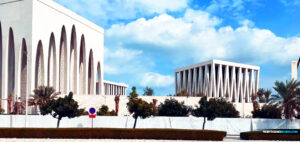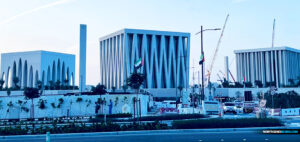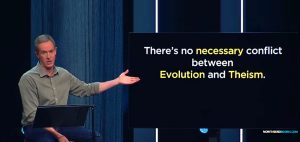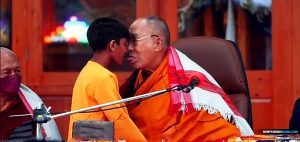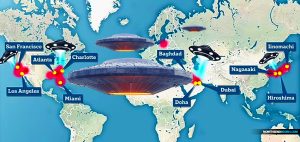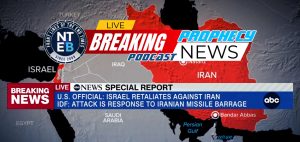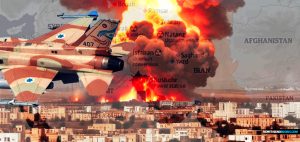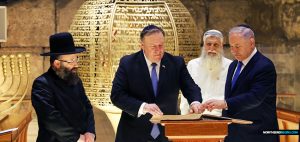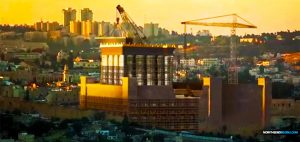Al-Qaeda
Obama Morphing Into George Bush As His Desire To Bomb Syria Escalates

Barack Obama has always portrayed himself as the anti-George Bush, a polar opposite to the hawkish, “cowboy” presidency so despised by Obama and his Liberal minions. But the more that little Baby Barry stamps his feet and throws a hissy fit over being denied the right to launch cruise missiles on Syria, the more he is starting to sound and look exactly like…George W. Bush.
Of course, it’s not a perfect comparison – Bush was against Muslim terrorists.
From Yahoo News: Obama’s rhetoric of the past is being tested by the reality of today as he presses Congress to allow the United States to launch a military strike against the regime of Syrian President Bashar Assad, over the objections of most major U.S. allies. It’s a posture that conflicts with positions he took as a young senator, a 2008 presidential candidate and even a first-term president as he cast himself as a counterweight to the more aggressive approach to national security embodied by his Republican predecessor, President George W. Bush.
ON CONGRESS
THEN: “In instances of self-defense, the president would be within his constitutional authority to act before advising Congress or seeking its consent. History has shown us time and again, however, that military action is most successful when it is authorized and supported by the legislative branch.” — Response to candidate questionnaire from The Boston Globe, December 2007.
NOW: “As commander in chief, I always preserve the right and the responsibility to act on behalf of America’s national security. I do not believe that I was required to take this to Congress. But I did not take this to Congress just because it’s an empty exercise. I think it’s important to have Congress’ support on it.” — News conference in Stockholm, Sept. 4, 2013.
ON ACTING ALONE
THEN: “In a world in which threats are more diffuse and missions more complex, America cannot act alone. America alone cannot secure the peace.” — Speech accepting Nobel Peace Prize, December 2009.
NOW: “I’m comfortable going forward without the approval of a United Nations Security Council that, so far, has been completely paralyzed and unwilling to hold Assad accountable.” — Remarks in the White House Rose Garden, Aug. 31, 2013.
ON APPETITE FOR WAR
THEN: “It is easier to start wars than to end them. It is easier to blame others than to look inward, to see what is different about someone than to find the things we share. But we should choose the right path, not just the easy path.” — Speech in Cairo, June 2009.
NOW: “The American people, understandably, want us to be focused on the business of rebuilding our economy here and putting people back to work. And I assure you, nobody ends up being more war-weary than me. But what I also believe is that part of our obligation as a leader in the world is making sure that when you have a regime that is willing to use weapons that are prohibited by international norms on their own people, including children, that they are held to account.” — Remarks at meeting with Baltic leaders, Aug. 30, 2013.
ON JUSTIFICATION
THEN: “We may not always have national security issues at stake, but we have moral issues at stake. If we could have intervened effectively in the Holocaust, who among us would say that we had a moral obligation not to go in? … And so I do believe that we have to consider it as part of our interests, our national interests, in intervening where possible.” — Presidential debate, October 2008.
NOW: “This kind of attack is a challenge to the world. We cannot accept a world where women and children and innocent civilians are gassed on a terrible scale. This kind of attack threatens our national security interests by violating well-established international norms against the use of chemical weapons. … If we are saying in a clear and decisive but very limited way, we send a shot across the bow saying, ‘Stop doing this,’ that can have a positive impact on our national security over the long term.” — Remarks at meeting with Baltic leaders, Aug. 30, 2013. source – Yahoo News

Al-Qaeda
Obama Administration ‘Loses’ Half Billion In Military Weaponry To al-Qaeda In Yemen
Pentagon officials cannot track the whereabouts of $500 million worth of military equipment the U.S. donated to Yemen since 2007 – raising alarms that the hardware may have ended up with al-Qaeda or Iranian-backed rebels.

Pentagon officials cannot track the whereabouts of $500 million worth of military equipment the U.S. donated to Yemen since 2007 – raising alarms that the hardware may have ended up with al-Qaeda or Iranian-backed rebels.
Ever wonder how al-Qaeda and ISIS always have such advanced weaponry and military capabilities? Wonder no more! Obama gives it to them, that’s how they do it. Did you think it was a trick question?
U.S. officials said Tuesday that increasing instability in Yemen has made it impossible to keep tabs on donated equipment that includes small arms, ammunition, patrol boats and night-vision goggles, according to The Washington Post.

U.S. firearms supplied to the Interior Ministry in Yemen, which has received $500 million in aid from the United States since 2007 under an array of Defense Department and State Department programs. (Government Accountability Office)
“We have to assume it’s completely compromised and gone,” a legislative aide on Capitol Hill, speaking on the condition of anonymity, told The Post.
In January, Yemen’s government was overtaken by Iranian-backed Shiite Houthi rebels. The rebels are increasingly taking over military bases.
Since then, the U.S. closed its embassy in Yemen and the Defense Department has stopped delivering equipment to the country, including a shipment of $125 million worth of military products scheduled to be delivered earlier this year.
This is the equipment no one can find, The Post reports:
- 1,250,000 rounds of ammunition
- 200 Glock 9 mm pistols
- 200 M-4 rifles
- 4 Huey II helicopters
- 2 Cessna 208 transport and surveillance aircraft
- 2 coastal patrol boats
- 1 CN-235 transport and surveillance aircraft
- 4 hand-launched Raven drones
- 160 Humvees
Al-Qaeda
Al-Qaeda Affiliate Threatens To Kill American Hostage Luke Somers
Luke Somers, a 33-year-old photojournalist, was abducted in 2013 in Sanaa, the capital of Yemen, according to media reports. In a YouTube video published Wednesday, he says he is certain his “life is in danger.”

An al-Qaeda affiliate has threatened to kill an American hostage in three days if the U.S. government does not respond to the group’s demands, according to terrorist monitoring group Site Intelligence Group.
Luke Somers, a 33-year-old photojournalist, was abducted in 2013 in Sanaa, the capital of Yemen, according to media reports. In a YouTube video published Wednesday, he says he is certain his “life is in danger.”

The video features an al-Qaeda official and a brief message from Somers – dressed in a purple shirt and with a shaved head – at the end. He notes that he was born in England but has American citizenship and lived in America for most of his life.
The al-Qaeda operative who speaks throughout much of the video and threatens that Somers will meet his “inevitable fate” if the group’s demands are not met is Nasser bin Ali al-Ansi of the Arabian Peninsula affiliate, Site Intelligence Group said. The video does not list what those demands are, but al-Ansi says Washington is “aware” of them.
“It’s now been well over a year since I’ve been kidnapped in Sanaa,” Somers said in the footage. “Basically, I’m looking for any help that can get me out of this situation. I’m certain that my life is in danger. So as I sit here now, I ask, if anything can be done, please let it be done. Thank you very much.”
Somers was kidnapped in September 2013 from a street in Sanaa, where he had worked as a photojournalist for the Yemen Times, the Associated Press said.
Read the rest of this story on USA Today…
Al-Qaeda
Islamic Terrorists Foster Jihad With Over 90 Tweets Per Minute On Twitter
Abdulmunim Al-Mushawah revealed that about 129,600 tweets were posted by accounts affiliated to terror groups in October 2014. As a result, at least 500 accounts believed to have been run by terrorists were deactivated.

Islamic terror groups post at least 90 tweets every minute, a new report has found
The data was revealed in a survey conducted by the Saudi-based Sakina, an independent, non-governmental organisation created to engage in dialogue online as a way to combat internet radicalization.

Results showed that terror groups such as the Syrian Islamic Liberation Front, Al-Nusra Front and Islamic State (ISIS) use social media to recruit new members and to spread their propaganda.
Abdulmunim Al-Mushawah, head of the organisation, revealed that about 129,600 tweets were posted by accounts affiliated to terror groups in October 2014. As a result, at least 500 accounts believed to have been run by terrorists were deactivated.
Al-Mushawah urged for a censorship committee to be put in place in order to monitor tweets that could be written to promote insurgents’ propaganda. “The nature of the extremist can be understood by analysing his posts, identifying his social circle and understanding his internal motives and history,” he was quoted by the Saudi Gazzette as saying.
“After understanding and recognising the type of extremist the person is, we can then follow the appropriate method of dialogue knowing that it is a lengthy and complicated process at times.
“The responsibility of protecting the general public from terrorist activities does not only lie with the official directorates. It is also the responsibility of the media, mosques and educational institutes,” he continued.
“Public awareness and guidance are the campaign’s top priorities because it is important to teach people how to face one problem without creating another.”
-

 George Soros7 years ago
George Soros7 years agoProof Of George Soros Nazi Past Finally Comes To Light With Discovery Of Forgotten Interview
-
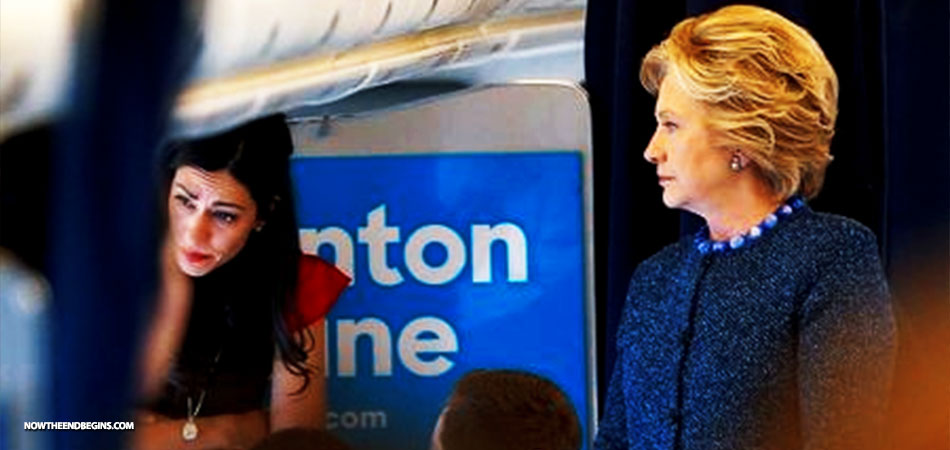
 Election 20167 years ago
Election 20167 years agoDEAD POOL DIVA: Huma Abedin Kept Those Hillary Emails That The FBI Found In A Folder Marked ‘Life Insurance’
-
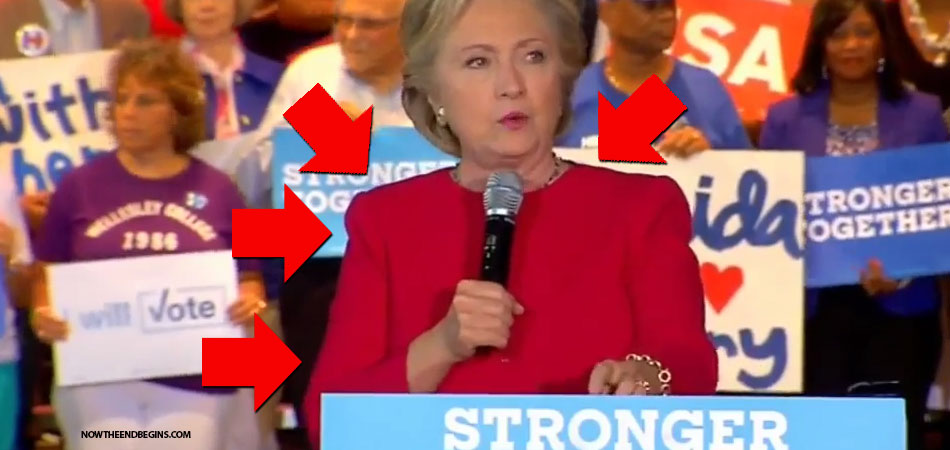
 Election 20167 years ago
Election 20167 years agoCrooked Hillary Campaign Used A Green Screen At Today’s Low Turnout Rally In Coconut Creek FL
-
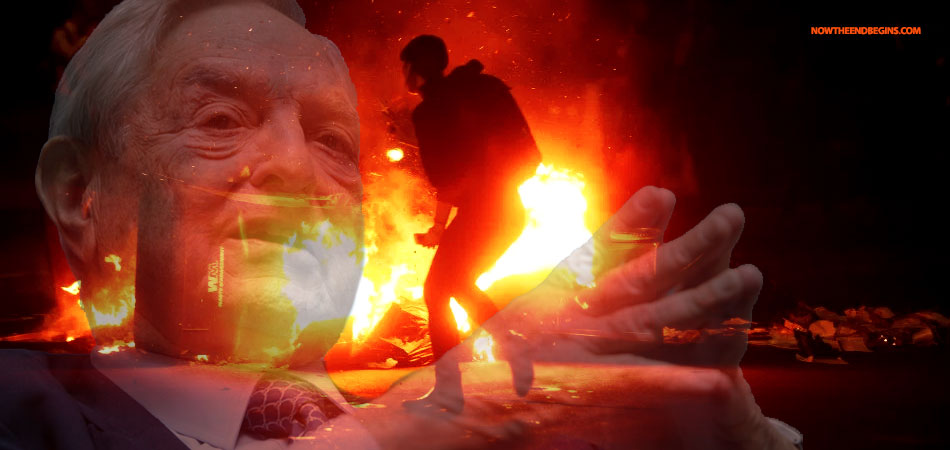
 George Soros7 years ago
George Soros7 years agoSORE LOSER: George Soros Declares War On America As Violent MoveOn.Org Protests Fill The Streets
-

 Donald Trump7 years ago
Donald Trump7 years agoDonald Trump Will Be 70 Years, 7 Months And 7 Days Old On First Full Day In Office As President
-

 Headline News7 years ago
Headline News7 years agoIf Hillary Is Not Guilty, Then Why Are Her Supporters Asking Obama To Pardon Her? Hmm…
-

 Election 20168 years ago
Election 20168 years agoWikiLeaks Shows George Soros Controlling Vote With 16 States Using SmartMatic Voting Machines
-

 End Times7 years ago
End Times7 years agoFalse Teacher Beth Moore Endorses The Late Term Partial-Birth Abortion Candidate Crooked Hillary




























